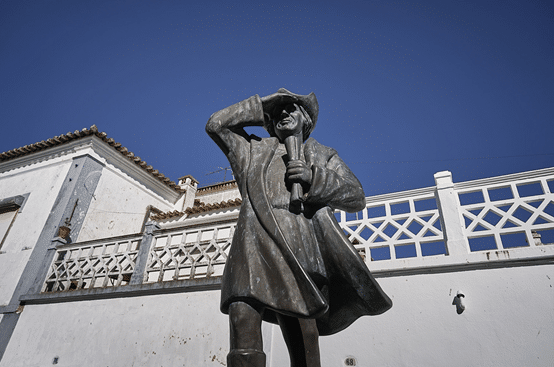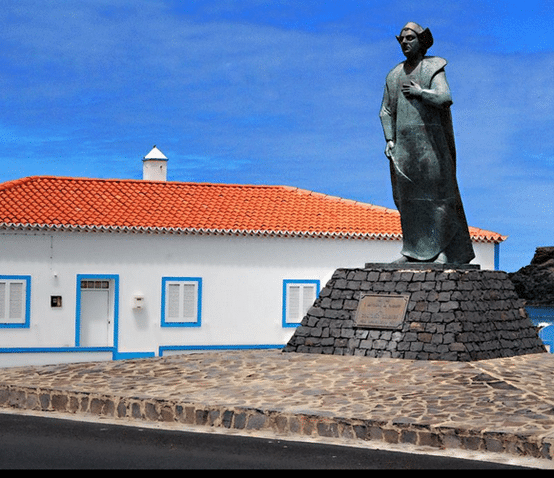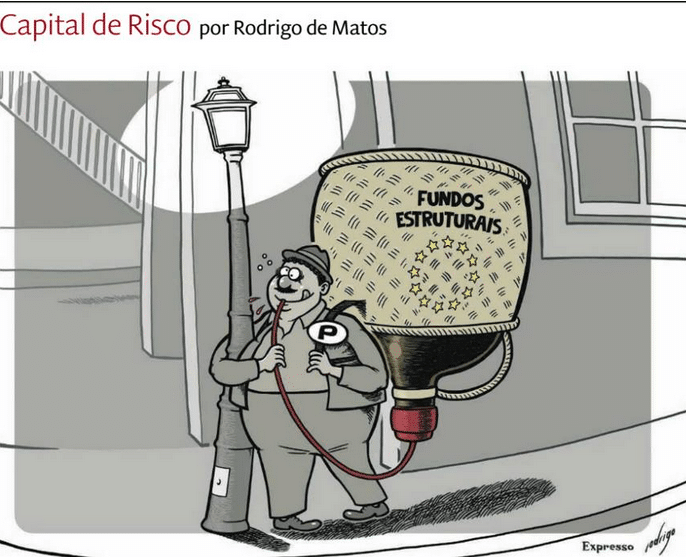The Portuguese Columbus
The (hypo)thesis of a Portuguese nationality of Columbus should not surprise us as many other national/regional origins have been claimed for him by many different authors of many different nationalities: Catalan[1], Galician, Corse, Greek, French, English, Danish, Bulgarian, are some of the different claimed origins for Colombo listed by Alexandre Picheiro Marques.[2] This author dismissed all of them, including the six Portuguese ones he quotes and briefly and dismissively describes.[3] He is not alone in this denial, as can be confirmed by Luis de Albuquerque[4] and others.
Santos Ferreira (1930), Ferreira de Serpa and Alexandre Naia (1951, p.81) would have found out, confirmed and/or accepted that Columbus true name was Salvador Gonçalves Zarco, infante “i.e. son of the king” of Portugal, illegitimate son of the infante D. Fernando and grandson of King Duarte.
Salvador Fernandes Zarco would be the true original name of Cristóvão Colón, in English known as Christopher Columbus.[5]
Some[6] point to the fact that Cuba, the name of a small town in the Portuguese southern area of Alentejo, would have been picked by Columbus as his birth place to name one of the Antilles islands discovered by him. However, in a deviant version, Cuba would have gotten first the name of Juana by Columbus, (Albuquerque 1990, p.115, and Marques p.57) and would have acquired its today’s name as a derivation from the indigenous Colba. (Marques opus cit, p.57)
[1] Jeffrey Herlihy-Mera “Christopher Columbus’s Catalan Inflected Language”, The Chronicle of Higher Education, October 8, 2017
[2] “As teorias fantasiosas do Colombo ‘português’”, Quetzal Editores, Lisboa, 1991. You may also access https://en.wikipedia.org/wiki/Origin_theories_of_Christopher_Columbus
[3] Fernando Branco “Cristovão Colón, Nobre Português”, 2012
[4] “Dúvidas e certezas na história dos descobrimentos portugueses”, Vega, Lisboa, 1990, p.105-175
[5] The name Christopher Columbus is the Anglicization of the Latin Christophorus Columbus. Also well known are his name’s renderings in modern Italian as Cristoforo Colombo and in Spanish as Cristóbal Colón. (Wikipedia, as of January 17, 2008)
[6] “Cuba. Esta vila é do cante, do vinho da talha e de um tal Cristóvão Colon”, in Público (Fugas), July 22, 2023. According to several historians reported here, he would be a son of infant D. Fernando, duch of Beja, and of Dona Isabel Gonçalves Zarco, originally christened Salvador Fernandes Zarco.

According to others the etymological origin of the word Cuba would be Cubanacam, “an Indian word meaning central place”, and not Cuba, a name of a locality in the Alentejo province of Portugal. This one would derive from “cuba”, a Portuguese word for wine container.
Naia (1951) tells Cristovam Colombo or Cristoforo Colombo from Cristóbal Colón apart, the first being the Italian weaver from Genova, and the second the Portuguese navigator whom the Portuguese King John the Second entrusted with a secret mission in Spain.
Instead of being a secret agent of King John II, Patrocínio Ribeiro (1927) declares Columbus as a mortal enemy of him, because the king would have given to Fernão Dulmo, and not to Columbus, the authorization to explore the sea west of the Azores. (Albuquerque 1990, p.115)
To accept the Portuguese origin of Columbus isn’t tantamount to accept the subsidiary hypothesis of him being used as a secret agent by the Portuguese king. Columbus could have just been used and manipulated to convince the Spanish monarchs to pursue his vision of reaching the East by sailing west. (Naia 1950 & 1951)
The main arguments and clues for (and against) the Portuguese origin of Columbus are:[1]
- The guy from Genova was a commoner son of a modest wool weaver who could never have acquired the education the later Columbus showed in terms of Latin and sciences. Couldn’t he have learned after he left Genova, namely in Portugal where he enjoyed a higher status?
- The son of a Genovese commoner would never have been allowed to marry a Portuguese noble woman like Filipa Moniz de Melo. (Couldn’t he be an exception?)
- This ‘Genovese’ never wrote in any of the Italian dialects, not even his own. (But couldn’t he just have forgotten it, or never have learned it well enough, as he had received a very poor education up to his leaving Genova?)
- On the contrary, he wrote in Latin and in a Spanish/Castilian corrupted with expressions of Portuguese origin. (But, couldn’t it be because of his long stay in Portugal (n years, from his 24-25 years of age), and because he would have learned Spanish here, as Pidal (1944, p.20) assumes?)
- Age gaps between statements of Columbus himself and the birth date of the Genovese Cristoforo Columbus. (Couldn’t this just be derived of occasional or purposeful mistake?)
- The mother-in-law of João Gonçalves Zarco, first governor (capitão donatário) of Funchal (Madeira island), was Cecília Collona, descendent of the Roman Colonnas. (Naia 1951, p.87)
- The alleged father of Columbus was D. Fernando, adopted son of Henry, the Navigator. His great uncle would have been the Infante Santo, D. Fernando (Naia 1951, p.88)
- Columbus alleged maternal great grandfather was João Gonçalves Zarco, one of the discoverers of the islands of Madeira and nearby Porto Santo. (Naia 1951, p.88)
- Columbus was allowed to attend a meeting between the King and Bartolomeu Dias, in December 1488, after he had rounded the Cape of Good Hope.[2]
- On the way back from his first trip to America/Antilles, Columbus’ first stop was in the Portuguese island of Santa Maria, Portugal, belonging to the Azores archipelago, and the second stop was in Lisbon, Portugal, where he dwelled several days – actually a full week, having the opportunity to conference privately and at length with the Portuguese King John the Second in Vale do Paraíso, near Azambuja, a few miles north of Lisbon, and respective queen on a separate occasion, who invited and received him with honors hardly appropriate to a traitor, or someone who would have left Portugal to offer his services to a foreign monarch.[3] (Naia 1951, p.118) (Perhaps just a coincidence and a sign of courtesy by the Portuguese monarch?)
- The Portuguese king addressed him in letters as his friend, even after moving to Spain to offer his services to the Spanish royals.
[1] Some adopted and adapted from Naia (1951, p.78). These and other arguments are also ventilated by Manuel da Silva Rosa “Colombo era um genovês ao serviço dos reis de Espanha ou um espião ao serviço do rei português?” in Miguel Sanches de Baêna and Paulo Alexandre Loução (coord.) “Grandes enigmas da história de Portugal”, Ésquilo, vol.1, p.519-528
[2] Armando Cortesão “The Mystery of Vasco da Gama”, Junta de Investigação do Ultramar, Lisboa and Coimbra, 1973
[3] Later in 1498 he reportedly also visited the Portuguese islands of Porto Santo and Madeira, never showing any interest in visiting his alleged birthplace Genova. And in May 1502, at the outset of one of his further trips to America, he would have sailed to the Portuguese stronghold of Arzila, in Northern Africa, today’s Morocco, in order to help the local Portuguese garrison fight off a siege. (Naia 1951, p.118)



